

.jpg)
Devotion to the Virgin Mary is the true bond between all popes and even the glue that holds Roman Catholicism together.
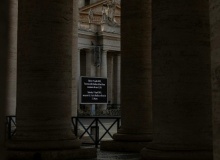
Does the Roman Catholic Church now accept that all religions lead to God? Where does this new view of religions come from? These are all legitimate questions.
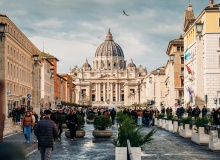
Started in 2010, the VF are a pool of resources to help evangelicals approach, understand and assess the complex reality of Roman Catholicism with gospel clarity and theological breadth.
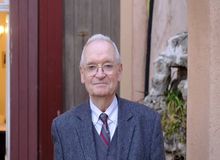
Blocher dissects the internal structure of Catholic ecclesiology and tries to grasp the connections that legitimize Rome’s high view of itself and its inflated prerogatives.
.jpg)
According to Francis, theology must be “fundamentally contextual” and no longer start from “first principles.” It must translate into a “culture of dialogue” with all and no longer think of itself as only lecturing to the world, religions, and others.
.jpg)
There is a risk the whole conversation may become a sterile exercise when two or more experts talk to one another, losing the gospel focus healthy theology must always have.
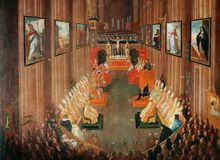
The first results of the “synodal process” in European dioceses are attacks on the Tridentine paradigm.

Francis is a “liquid” pope who is liquifying an institution that has made its rocky and immutable structure a distinctive trait of its identity.
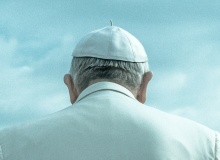
Whoever is elected, the next pope will unlikely be an “evangelical” if the word “evangelical” retains its doctrinal and historical meaning.
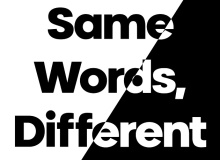
In his new book “Same Words, Different Worlds”, Italian theologian and evangelical pastor Leonardo De Chirico defends the need to understand the theology that differentiates evangelicals and Roman Catholics.
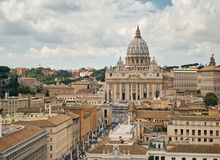
Even if the call to listen to the Word of God is present in these speeches, it seems to lead to an increased catholicity rather than an appeal to recover the biblical gospel.
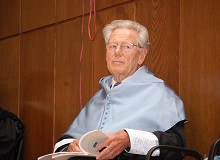
The Swiss theologian was the forerunner of positions considered at the time "extreme" or even "disruptive" which then became "mainstream".

The recent book by Thomas G. Guarino, The Disputed Teachings of Vatican II. Continuity and Reversal in Catholic Doctrine, is particularly helpful for evangelicals for at least two reasons.

Five years ago, Jorge Mario Bergoglio was elected Pope Francis.

The key question is whether Catholicism can consider popular Protestantism as God´s work. It is the same question that many traditional Protestant denominations also ask themselves.

The traditional theological structure was geared to give Yes or No answers. The post-Vatican II structure is more inclined to suggest Both-And types of answer on all kinds of issues.

What the Pope has in mind is an altogether different kind of reformation, i.e. a reformation that will make his church more catholic and more Roman, doubtfully more evangelical.

In assessing the ecumenical scene, the risk of looking at Lund without being aware of what happens in Rome is real.

Where is the Roman church headed After Vatican II? An interview with Leonardo de Chirico.

The territorial dimension of the hierarchical church, centered on the authority of the bishop, has found it difficult to come to terms with the charismatic energy of the movements, more inclined to follow their own lay leaders than the local bishops.

The issue at stake is whether or not Luther is to be rescued from himself in order to be heard by the church and the world.

Italian pastor Giovanni Traettino believes “the Word of God is moving and acting in the Catholic Church.” The Pentecostal leader encourages other churches to have an “open” approach to the Vatican. “Pope Francis is my brother in Christ”, he says in an interview with Evangelical Focus.

Las opiniones vertidas por nuestros colaboradores se realizan a nivel personal, pudiendo coincidir o no con la postura de la dirección de Protestante Digital.